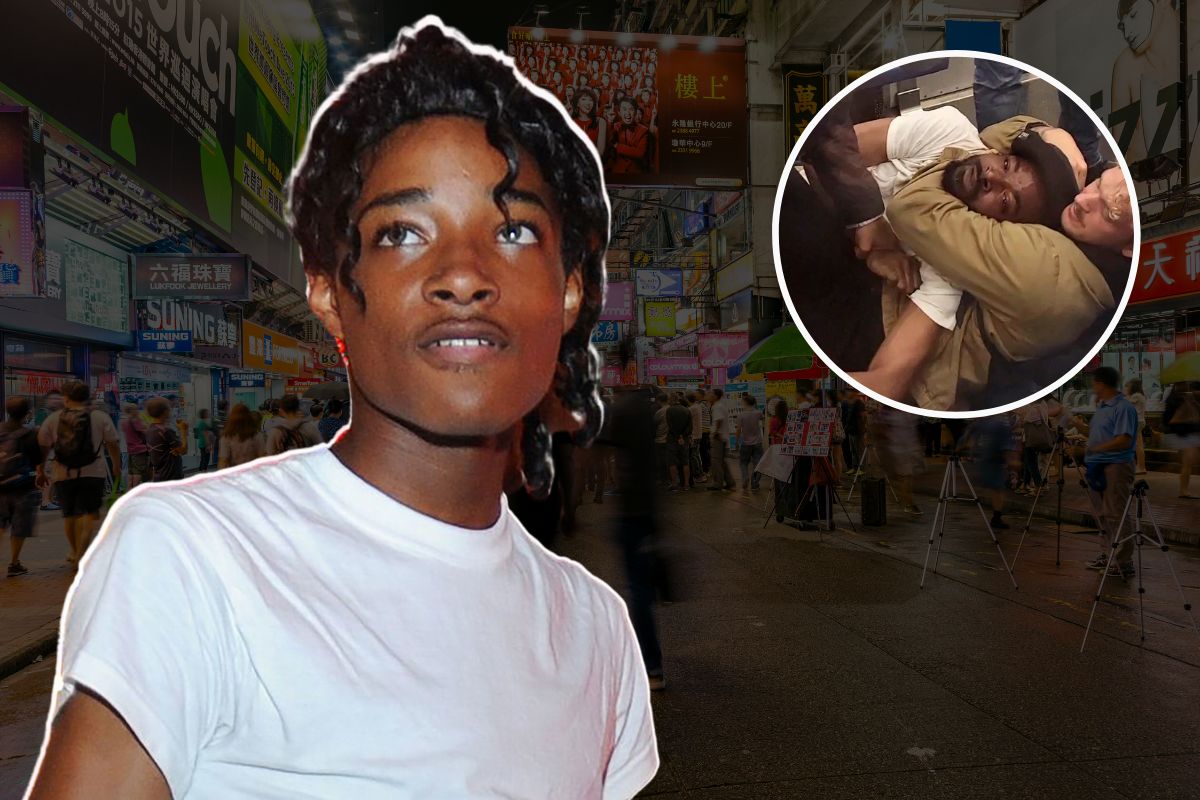A man who impersonated Michael Jackson tragically lost his life during a distressing incident on a New York City subway train. On Monday, May 1, 2023, witnesses and police reported that the man, known as a Michael Jackson impersonator in Times Square, was shouting and behaving erratically on an F train in Manhattan. Several individuals, including a U.S. Marine veteran, restrained him, ultimately leading to his death. The city’s medical examiner concluded that the cause of Michael Jackson impersonator’s death was compression of the neck.
The Story of a Michael Jackson Impersonator’s Tragic End
Jordan Neely, a 30-year-old who impersonated Michael Jackson, had gained a significant following in New York City and beyond. People admired his dancing skills and created a Facebook group to share his performances. However, Neely’s life took a turn for the worse in recent years. According to a friend and relative, he faced tough times, ended up living on the streets, and struggled with the pain of losing his mother in a brutal incident in 2007. Sadly, this story took a devastating turn with the news of Michael Jackson’s Impersonator Death.
Jordan Neely’s family has revealed that the 30-year-old wrestled with mental health challenges ever since his mother’s tragic murder when he was just 14 years old. Speaking to the New York Post, Neely’s aunt, Carolyn Neely, 40, shared the heart-wrenching impact of the 2007 incident. Neely’s mother, Christie Neely, 36, was strangled by her partner inside their New Jersey residence.
The perpetrator later discarded her remains in a suitcase near a Bronx highway. Throughout the trial, Neely bravely testified against his mother’s killer. According to Carolyn, the family encountered considerable difficulties in accessing mental health resources and support for her nephew in the aftermath of the tragedy.
Details Surrounding Michael Jackson’s Impersonator’s Death
According to the person who recorded the incident, Jordan Neely, the Michael Jackson impersonator, entered the subway car loudly expressing his hunger and thirst. He shouted alarming statements, such as being ready to die and not minding life imprisonment. Eyewitness accounts mention that Neely removed his black jacket and threw it on the ground, escalating the situation. In response, an unidentified 24-year-old man approached Neely from behind and subdued him by using a chokehold.
The entire episode, captured in a four-minute video, captures another passenger joining the restraint until Neely became unresponsive. The Medical Examiner’s spokesperson, Julie Bolcer, confirmed that Neely’s cause of death was neck compression resulting from the chokehold. The incident occurred on a Lower Manhattan F subway train, where Neely became unconscious on the floor. After Neely ceased moving, the police arrived, questioning and subsequently releasing the 24-year-old individual with prior military experience involved in the restraint. Neely was then transported to a nearby hospital, where he was tragically pronounced dead. Neely’s death was declared a homicide by the city’s medical examiner, leaving the community in sorrow.
A 24-year-old former Marine, whose identity remains undisclosed, and who seems to have a Caucasian background, was apprehended by authorities and subsequently released without any charges pressed against him. The individual’s name has not been made public. Despite false accusations of violence, many remembered Neely as kind and talented. Jony Espinal, Neely’s neighbor, met him back in 2012 when they both lived in Upper Manhattan. Espinal recalls Neely’s calm and quiet demeanor, often dressed as Michael Jackson. Espinal and Neely bonded over video games, anime, and Neely’s busking. Espinal described him as a regular, nerdy kid, far from any negative portrayal. Others, like Larry Malcolm Smith, Jr., mentioned Neely’s generosity. Smith shared that Neely would use his dance earnings to help other kids with food and haircuts.
Investigation into Michael Jackson’s Impersonator’s Death
The death of a Michael Jackson impersonator has led to a serious investigation. This incident has stirred up strong emotions and raised concerns about issues like race, increasing violence on the subway, and more mentally ill homeless people seen in the streets after the COVID-19 pandemic. Mayor Eric Adams expressed sadness about the death and mentioned that there’s still a lot we don’t know about what happened.
However, he acknowledged that mental health problems played a significant role in this situation. That’s why the city has invested a lot of money to provide care to those in need and help them get off the streets and find safety. Local news reported that the impersonator, known as Neely, had a history of breaking the law, but we don’t know exactly what kind of crimes he was involved in. Subway police and groups helping the homeless and mentally ill were somewhat familiar with him.
Apart from his troubles, Neely was loved by many people in New York, as well as tourists, for his incredible dance impersonations of Michael Jackson. He often performed in Times Square, close to the famous Broadway theater district. As we investigate and mourn the tragic death of the Michael Jackson impersonator, it’s important that we address the challenges it brings to light. We need to work together to create a safer and more caring society, where everyone receives the support they need.
Taking Action after the Michael Jackson Impersonator’s Death
The death of the Michael Jackson impersonator, Neely, has happened at a time when many people are worried about homelessness and mental illness in New York City’s streets and subways. Last year, there was a terrible shooting on a subway train that hurt ten people, and it brought a lot of attention to these issues. In response, Mayor Eric Adams promised to increase the number of police officers and mental health workers in the transit system to keep everyone safe.
Bottom Line
Neely’s passing reminds us that we need to find suitable solutions to these problems. We have to address homelessness and mental health correctly, making sure that everyone in the city is safe and well. As we mourn the loss of the Michael Jackson impersonator, it’s crucial that we work together to make the city a better place for everyone.
















